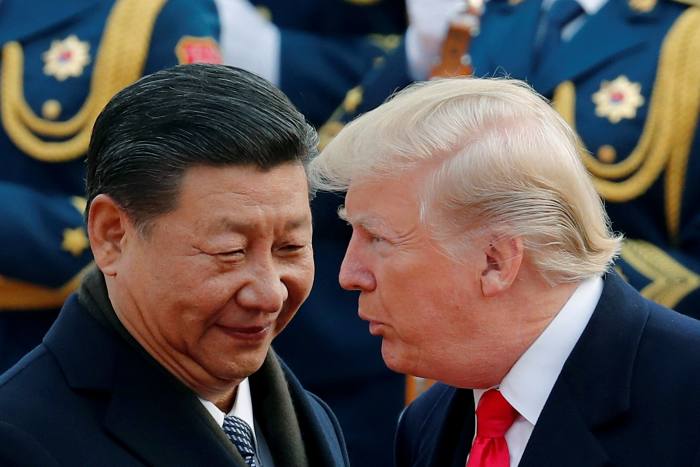
Escalating trade tensions between the US and China will more likely dent European equities, while the outlook for US equity funds is improving, say experts.
So why are European and UK equity funds vulnerable to trade tensions?
Impact on European and UK equity funds
Ernst Knacke, fund research analyst at Quilter Cheviot explains how European markets will suffer more than the US because of its reliance on global growth.
He says: “Given the US consumer is 70 per cent of the US economy, an escalation of the trade war may result in higher input costs and cost inflation. This is then borne by the consumer [which may] result in a slowdown and ultimately a recession in the US.”
He adds: “Perversely, consequences of such an event might be worse for European markets given their reliance on global growth.”
Key facts:
- Trade tensions between the world’s two largest economies have been bubbling on since 2017, when the US launched an investigation into US trade policies.
- Last year, the US imposed tariffs worth on more than $250bn worth of Chinese goods. China retaliated by launching tariffs on US goods worth $110bn.
- A truce reached between both countries collapsed year.
- The US had threatened to impose further tariffs worth $300bn of US goods but positive developments at the G20 last month means both countries are engaging in further negotiations.
Mihir Kapadia, chief executive of Sun Global Investments, thinks the US is likely to outperform UK and European equity markets, especially given the dominance US tech firms.
He adds: “This will continue to have a huge sway in the future and although more expensive, will be a useful diversification tool.”
Mr Kapadia thinks Europe is showing signs of a slowdown despite low valuations and imminent easing by the European Central Bank.
Jason Hollands, managing director of Tilney Investment Management, confirms this view .
“Paradoxically, a deterioration in the Chinese economy might actually hit Europe harder than the US, since the European economy is more exposed to exports and Europe’s equity markets have a much higher exposure to a cyclical sector,” he says.
Diversification
Several commentators stress that US equity funds will help investors diversify away from UK and Europe amid a volatile geopolitical landscape.
Anthony Willis, Investment Manager BMO GAM’s multi-manager team, says: “Our view is that it pays to have a portfolio that is diversified internationally to give exposure to companies operating in other parts of the world, often in faster growing sectors and economies.”
He warns that investors who only hold UK and European assets could be potentially missing out on significant returns by failing to look further afield.
Mr Willis adds: “We would argue that as well as investing in the US, investors should ‘look east’ as well towards Asian, Japanese and emerging market funds for a truly diversified portfolio.”
Mr Knacke highlights how the US equity market can deliver very strong returns for investors during turbulent times for Europe and the UK, in the way it did during the Euro crisis.
“This should be a big consideration for investors as Brexit and knock on effects of this on Europe looms,” he adds.
On July 23, Boris Johnson won the leadership race to become Tory party leader and UK prime minister.






